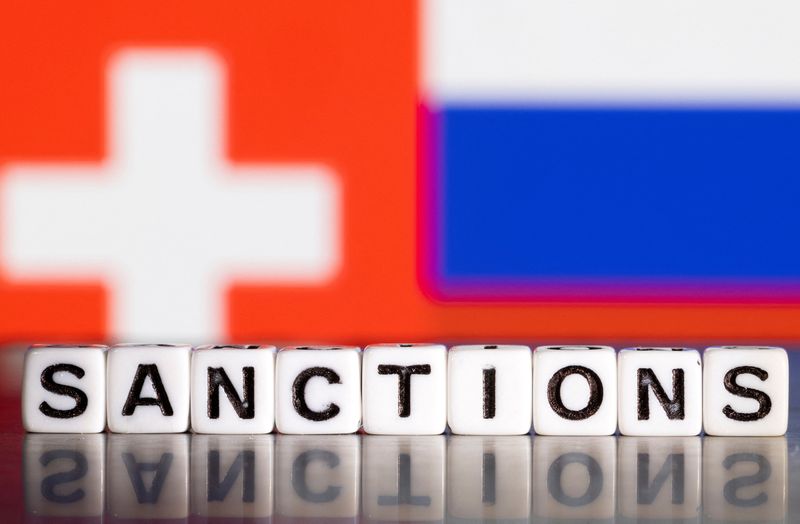ZURICH (Reuters) – The value of Russian assets frozen in Switzerland due to economic sanctions on Moscow rose to 7.4 billion Swiss francs ($8.38 billion) at the end of March 2025 from 5.8 billion francs a year earlier, the Swiss government said on Tuesday.
The 1.6 billion franc increase was due to the identification and blocking of additional funds, the government said.
The Swiss economy ministry pointed to an ongoing criminal investigation by the Swiss attorney general’s office into suspected sanctions breaches and money laundering that accounted for most of the new assets blocked.
It declined to give details on the sector, companies, or individuals involved but said the case had become public in August 2024.
That month Swiss newspaper Le Temps and other media reported Switzerland had provisionally frozen 1.3 billion Swiss francs worth of assets and was investigating four people with links to sanctioned Russian billionaire Suleiman Kerimov.
The attorney general’s office confirmed those reports in subsequent statements made to the media. It did not immediately respond to a request for comment by Reuters about the increase in frozen assets reported by the government.
The ministry said it is investigating several cases in connection with suspected sanctions violations by Swiss companies via foreign subsidiaries in the commodities sector.
Frozen assets included properties, luxury cars, aeroplanes and art works, authorities said.
Switzerland has mostly adopted in full EU sanctions against Russia since Moscow’s war in Ukraine began in February 2022, though the traditionally neutral country came under pressure to crack down on sanctions evasion earlier in the war.
($1 = 0.8827 Swiss francs)
(Reporting by Ariane Luthi; Editing by Dave Graham, Aidan Lewis)
